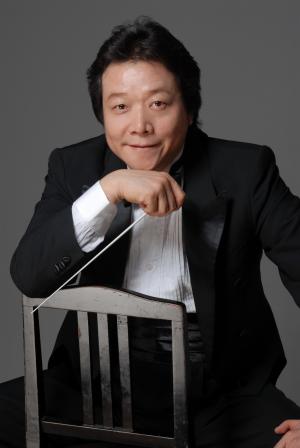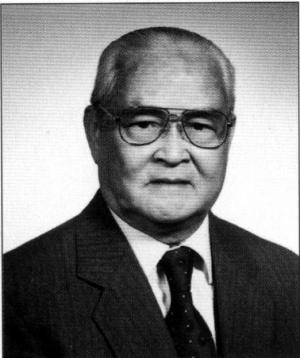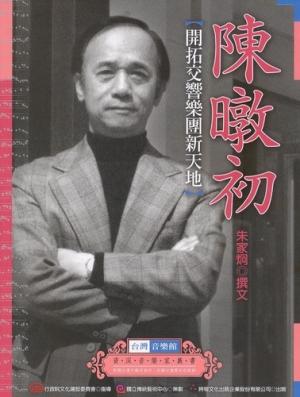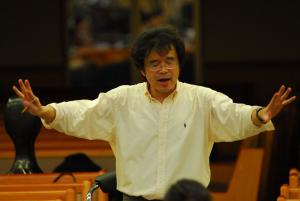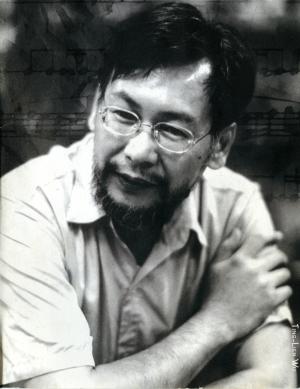【音樂】 太極
此為一用室內樂伴奏的獨唱曲,曲式依歌詞段落分為四段。首先以逐漸擴展變化的層面音響開始,欲營造蒼茫天地之感。A段聲樂以類似國劇唱腔一字多音的吟唱,或充滿戲劇性張力的滑音與抖音為主,與融合東西方語法的唸唱為輔交織而成,以表達山太極在無形間自然運行之感。器樂僅予以簡單的呼應與延續、變化層面音響寫作。B段延續上段素材,並融入較不和諧的音程與近似歌仔戲風的旋律,未作更多鋪陳,是為了對比出下一段的震懾;平靜中帶有內心激烈的波動,講述著太極本是無形,不應停留在人問的初衷。C段藉由聲樂多次同音反覆與特定音型的模進,與器樂間相互激盪,營造歌詞中所言「生生死死死死生生」的張力,描述生死輪迴、生生不息之情境,就在音樂推至最高潮之際,倏地轉淡,將激昂的情感收斂在聲樂的獨白之中,嗟嘆歲月的流轉。間奏延續此段高張的音響,進入D段。D段融合了A段抒情的旋律線素材與C段節奏式音型素材的發展,音樂拉到極致後,由女高音唱出極為簡約,卻非常帶有感情的「化引成形」一句,輕描淡寫地結束。
This is a vocal solo with chamber music accompaniment. The form is A-B-C-DThe music has begun with a gradual expansion and development of stratified acoustics, in order to construct the feelings of the vast firmament and earth. In paragraph A, the soprano sings with one word with many notes, small and wide range of vibrato, and glissando, so as to mimic the dramatic sounds in Chinese opera. Additionally, I integrate speaking voice of Eastern and Western ways. The materials interweaves into this paragraph, in which to depict Tai Chi orbits imperceptibly. The instruments just respond to the vocal part.Except for the existing materials, it is merged with Taiwanese opera style melodies in paragraph B. In order to compare the shock of succeeding paragraph, this passage doesn't express too many emotions. The atmosphere is calm but with intense fluctuations. The paragraph expresses that Tai Chi is invisible, and it shouldn't possess any affections originaily.Paragraph C is full of repetitions of the same note and small motives in Soprano and other instruments in order to pile up the tension of life and death. It depicts that life and death transmigrate and make up the world of vitality. While the music is at the peak, it turns light and keeps all the moods in Soprano's solo melody. The sentence describes how time flies in countless years. The interlude builds drastic sound and enters the last paragraph.In paragraph D, the materials of music blend sentiment melodies in paragraph A and rhythmic motives in paragraph C. When the music is at its highest peak, it falls into a simple but affectionate melody produced by the Soprano.


